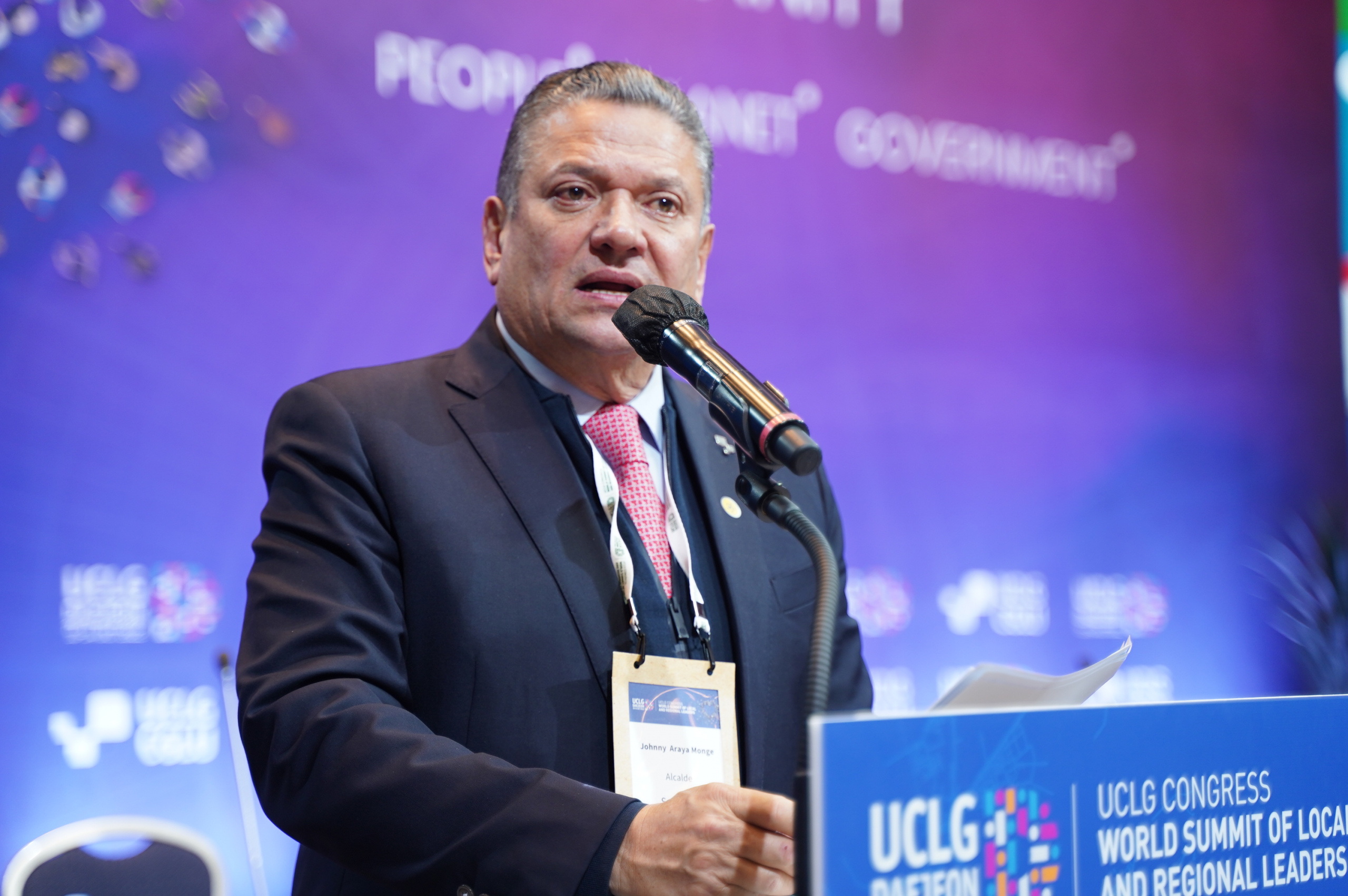Two years ago, when the UCLG World Council was hosted by the city of Guangzhou, China, the conversation took place during the COVID-19 pandemic when local and regional governments re-prioritized their actions and made newwork plans to support communities. At the time, the Council addressed the need to place public service delivery and the commons at the core of efforts in the post-COVID era; the need to transform the relationship between people and natural ecosystems; how to ensure that our patterns of consumption and production are in line with the wellbeing of our populations; and the importance of including local and regional governments in the conversations on recovery. All of those points are presented as the Pact for the Future of Humanity, which is being further discussed in Daejeon.
The three key elements of the Pact for the Future of Humanity — people, planet, and government — reflect UCLG’s mandate. Each of these elements reflect the views of mayors and political representatives the UCLG, as well as partners from civil society, academia, and other stakeholders who brought their views and commitments into the development of the Pact.
The Pact commitments aim to touch on human and planetary impacts, powered by solidarity, equality, culture, and accountable institutions that leave no one and no place behind. As Núria Marín I Martínez, Mayor of L’Hospitalet de Llobregat, Spain, highlighted, a global pandemic has simultaneously reinforced both the interdependence and the vast separation that exists within and between societies, resulting in the rampant growth of inequalities. She stated that to truly address inequalities, we must empower people and focus on education, retraining, and ensuring marginalized communities are not left behind. “It is about guaranteeing decent work and fair pay for all, and ensuring that women and girls are fully empowered to achieve their full potential as citizens and foster a feminist way of going about politics,” she concluded.
Discussion continued with an intervention by Anita Bathia, Assistant Secretary-General of the United Nations and Deputy Executive Director of UN Women, who said that the world is expecting local actions to be looked at through feminine lenses. Carolina Cosse, Mayor of Montevideo, Uruguay stressed that local and regional governments should put health at the top of the agenda. “Humanism needs to be in the center and leads policies,” she added.
From World Water Council, Loic Fauchon called upon local and regional governments to address access to drinkable water for people, similarly Justin Koonin of UHC2030 stressed the importance of access to basic urban services including health. Elana Wong from the UCLG Youth Caucus supported previous statements by calling for leaders to provide access to basic urban services, in particular health care and education, for youth in their cities and regions. Maria Soledad Cisternas Reyes, representing the Accessibility Caucus mentioned that we are in the age of local governance and that the Pact of UCLG will lead local and regional governments to implement policies in favor of those marginalized communities.
The Pact for the Future of Humanity focuses on how cities and regions care for people by bringing a new, feminist way of politics based on local service provision. These governments are moving forward to transform the social contract by developing caring societies based on the provision of local services. A new feminist approach to politics, operating through empathy and solidarity, fosters social justice and equality as the indispensable building blocks of a just, sustainable and thriving society.
Further, during the session Mayor Rohney Lowe of Banjul, The Gambia, stressed the importance of implementing the Pact with this feminist approach, noting that we have to be “brave and bold” to achieve this together. The mayor of Grigny, France, Philippe Rio expressed agreement and support for the vision of feminist municipalism. Mehmed Duman, who chairs UCLG-MEWA reminded the audience about refugees in his and other regions, and called for the adoption and implementation of the Pact for the benefit for all vulnerable communities in society.
The UCLG invited partners to collectively support joint aspirations, and to engage with a concrete pledge for the to guide and prioritize actions in these critical times.
UCLG PRESIDENCY PLEDGE ON THE PACT FOR THE FUTURE FOR HUMANITY
On behalf of the UCLG Presidency, Li Mingyuan, Mayor of Xian, delivered a pledge during the Pact for the Future plenary session:
“We, local and regional government leaders, Pledge to address the roots of inequality placing gender equality, protecting the urban poor, political participation, access to services, dignity, decent work and public spaces at the heart of our strategy. We also pledge to actively promote accessibility as a precondition to inclusion and universal housing, paying particular attention to the needs of self constructed settlements by replacing forced evictions with policies that promote inclusion and participation. UCLG Presidency will endeavour for this Pledge to directly answer on the international development agendas beyond 2030, providing the contribution of UCLG to the UN Summit of the Future and SDG Summit, putting people and equality at the center.”

